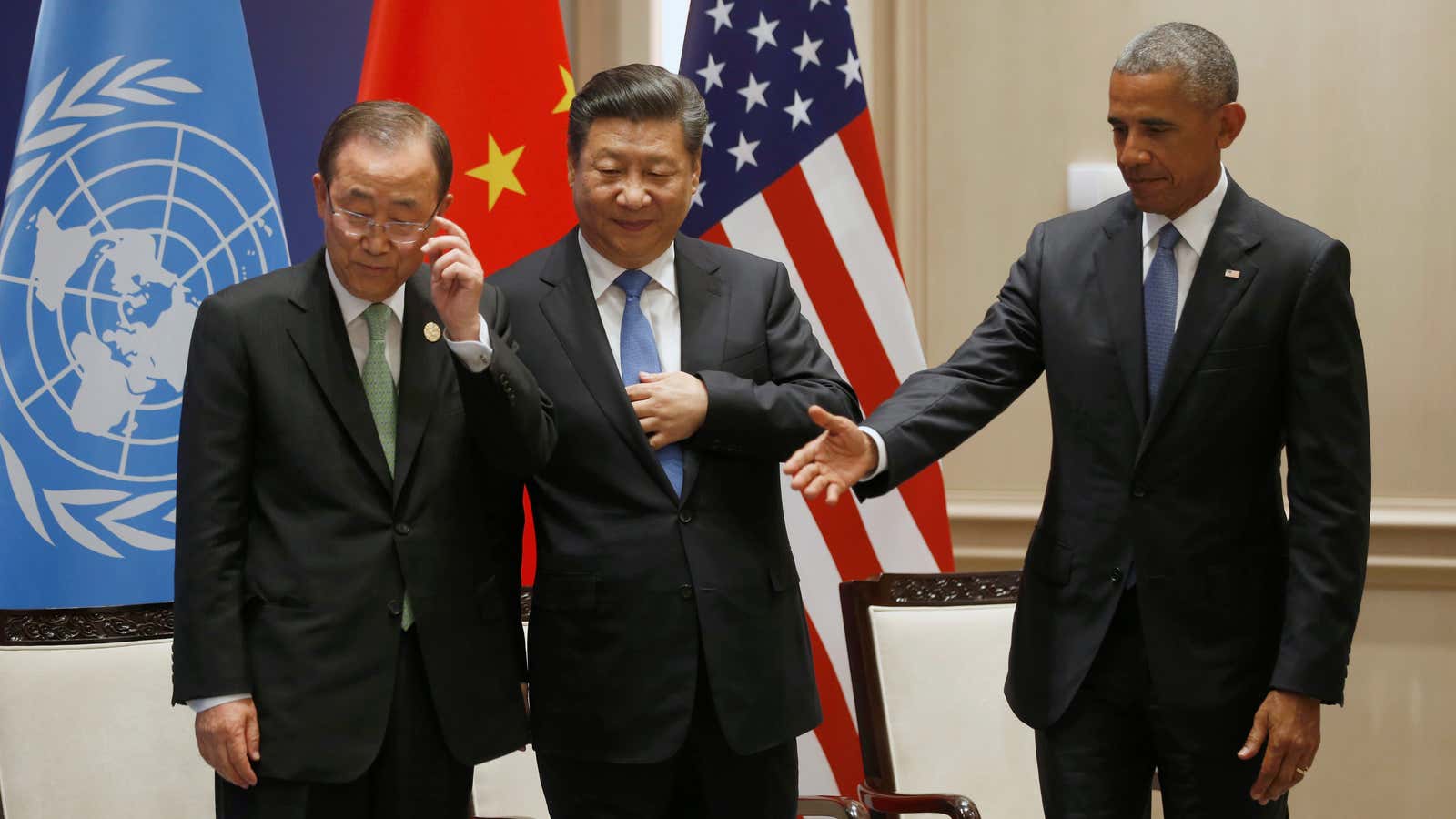Barack Obama just wrapped up what is expected to be his last visit to China as US president with the G20 summit, an annual forum for world leaders held in Hangzhou, China. While China and the US signed a historic climate change agreement, a tarmac fight between a US journalist and a Chinese official, and the lack of red carpet treatment for Obama on the same tarmac, dominated analysis of the meeting between leaders of the world’s two superpowers.
The “plane stairs” snub has been deemed an accident, but an unreported incident appears to be a more deliberate rebuke.
The real friction between the two countries is highlighted by Obama’s warning just before the G20 that Beijing’s defiance of an international ruling on China’s claims in the South China Sea would have consequences. During an interview with CNN’s Fareed Zakaria, he laid out what he planned to say to Chinese president Xi Jinping when they met:
Part of what I’ve tried to communicate to President Xi is that the United States arrives at its power, in part, by restraining itself. You know, when we bind ourselves to a bunch of international norms and rules it’s not because we have to, it’s because we recognize that over the long term, building a strong international order is in our interests. And over the long term it will be in China’s interests as well.
So where we see them violating international rules and norms, as we have seen in some cases in the South China Sea, or in some of their behaviors when it comes to economic policy, we have been very firm and we have indicated to them that there would be consequences.
If you live in China, or are getting your news from China’s officials media outlets, though, you would have no idea that Obama expressed any criticism during his Sept. 3 meeting with Xi, or even that the CNN interview happened at all.
That’s because on Sept. 3, the Publicity Department of the Communist Party of China, the government’s propaganda department, sent out an order forbidding any “reporting” or “reposting” of Obama’s “irresponsible remarks” during the CNN interview, and specifically of his remarks about the South China Sea, an editor from a Guangdong-based government-supervised media outlet, who received the order, said.
Official Chinese state media coverage of the meeting between Xi and Obama doesn’t mention any friction between the two leaders on the issue at all, or that the US objects to Beijing’s position. Xi reaffirmed China’s position on maintaining sovereignty in South China Sea (link in Chinese) during the meeting with Obama, Xinhua and CCTV reported. The Chinese government “hopes that US would contribute constructive actions on maintaining peace within South China Sea areas,” the reports say.
Xinhua’s “full text” of the Chinese outcome of the meetings between the two leaders specifies peace-keeping in conflicted areas like Afghanistan, Syria, South Sudan, and Iraq, but the South China Sea is not included.
The restriction appears to be anther tactic by the Chinese government to censor any and all criticism of Beijing’s stance in the South China Sea, which most Chinese people learn in school belongs to China. In fact, state-owned tabloid Global Times wrote on Sept. 5 that discussing the issue just hurts both sides’ interests.
